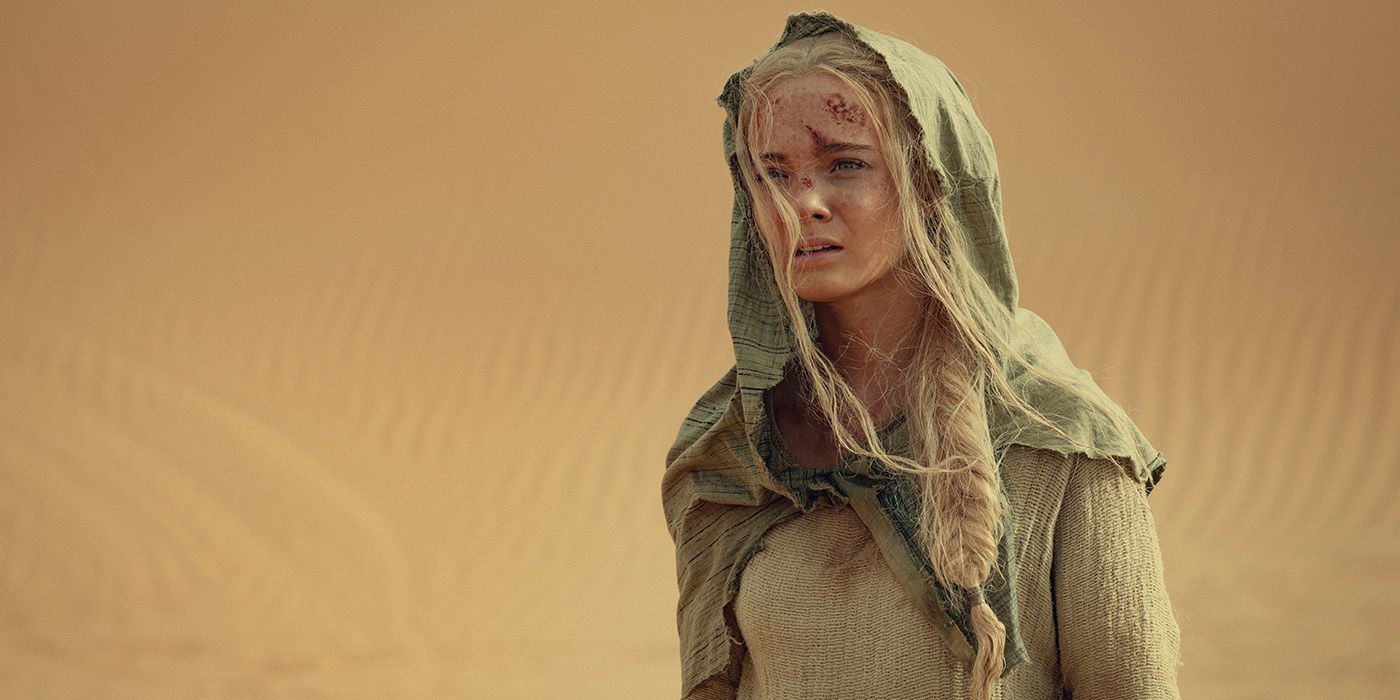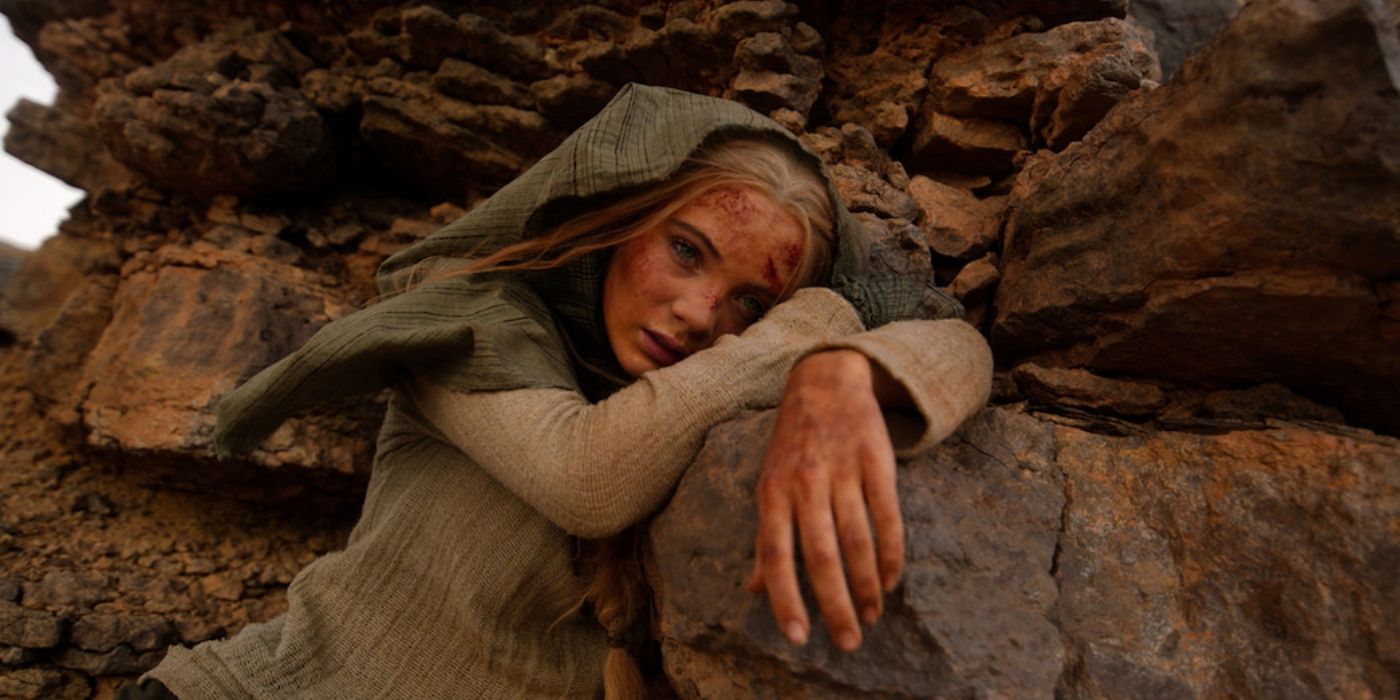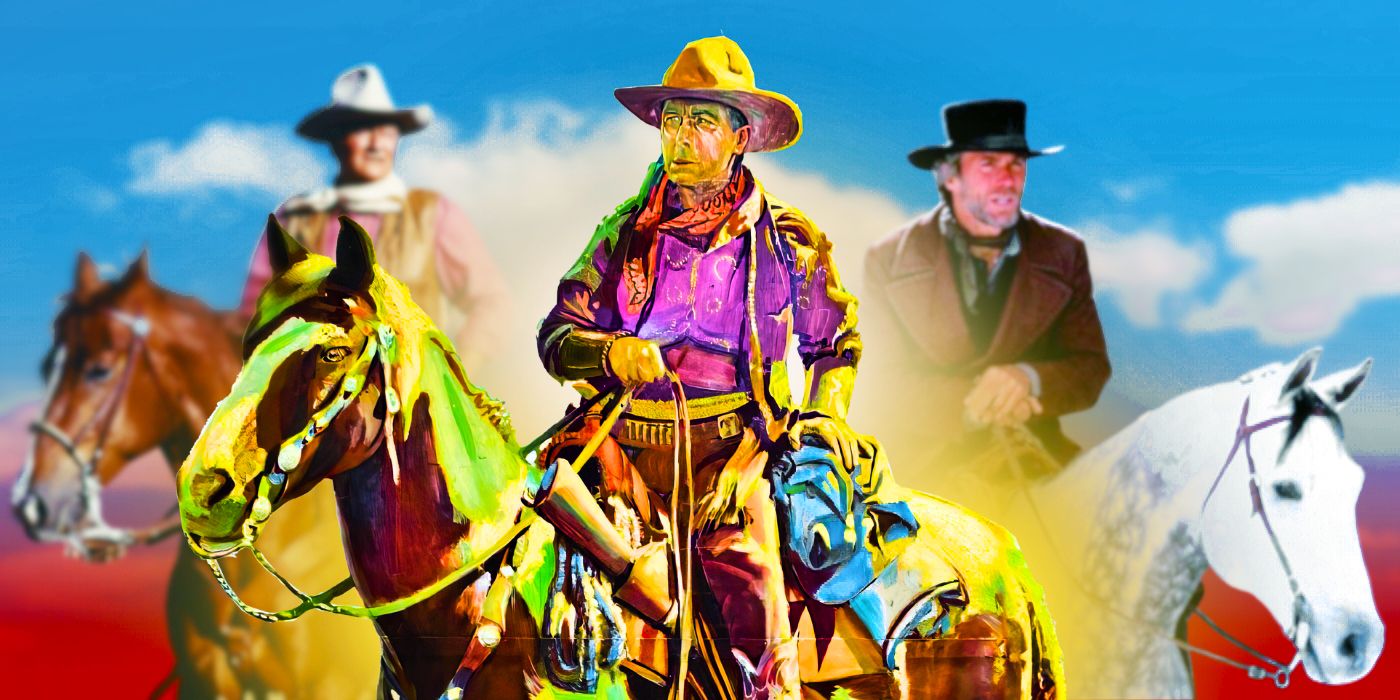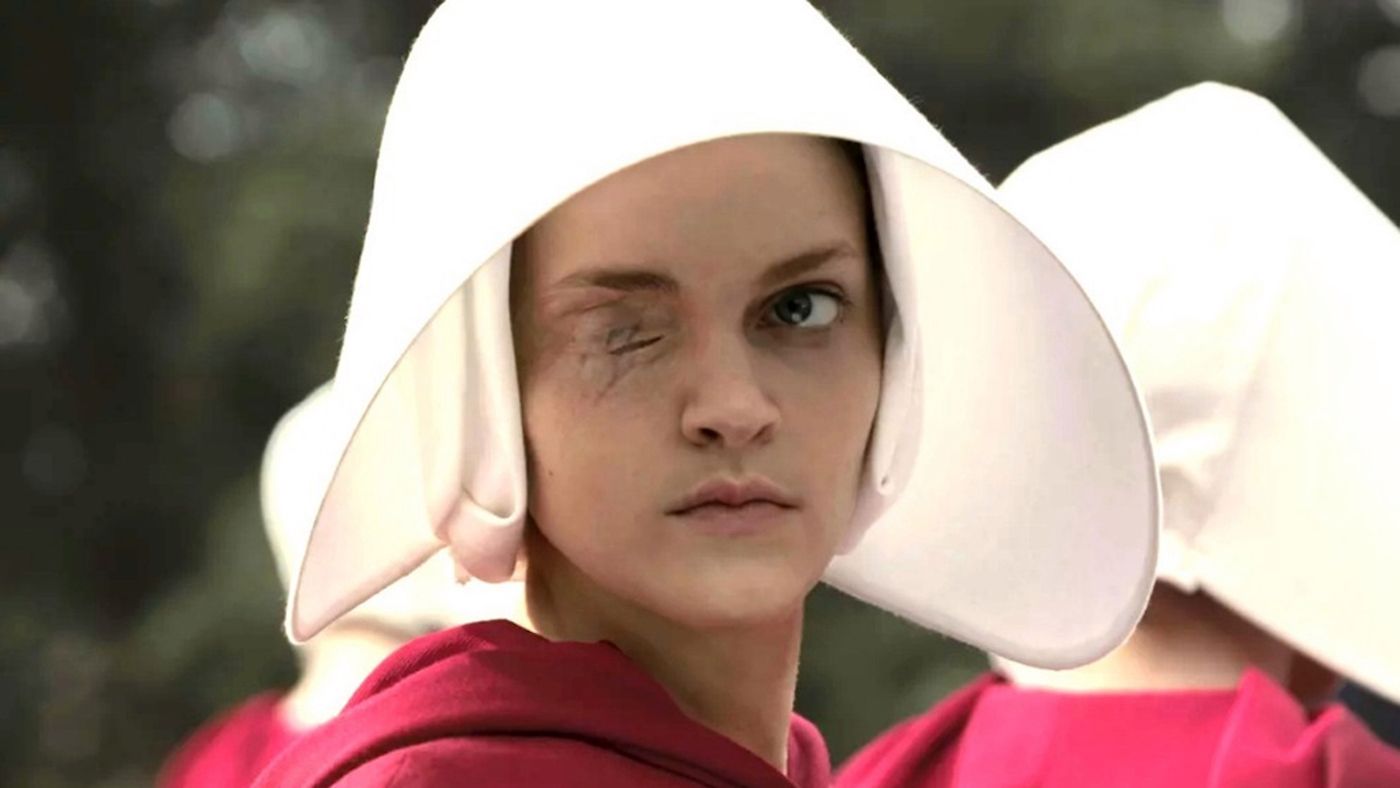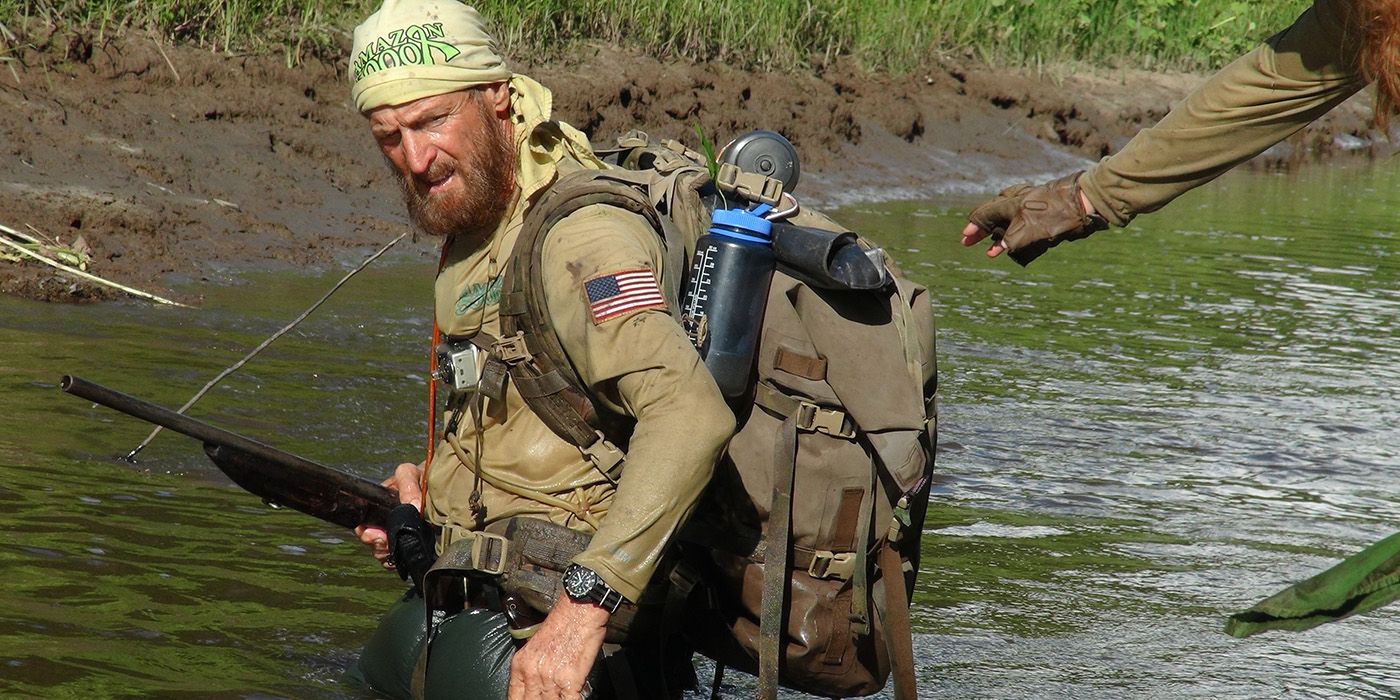Editor’s note: The below contains spoilers for Season 3, Vol. 2 of The Witcher.
The Big Picture
- Season 3 of The Witcher showcases Ciri’s transformation from a sheltered princess to a capable survivor, as she navigates the harsh conditions of a desert alone.
- Ciri’s desert trials force her to confront her fears and insecurities through hallucinations of her mother, grandmother, and a notorious queen, Falka.
- Ciri’s decision to relinquish her magic and embrace her newly transformed identity sets up significant ramifications for the future of The Witcher and her role as a potentially leading character in Season 4.
Season 3 of The Witcher wraps up while unmistakably putting Ciri (Freya Allan) in the foreground. The second volume of the season in particular features Ciri journeying through the harsh conditions of a desert alone, relying on her wits and everything she has learned about survival. This is the first time in the series that we actually see how capable Ciri has become, especially considering how much of a sheltered but tormented princess she began as. Her harrowing journey through the desert also builds up to a climactic resolution, forcing her to make a decision that will have a profound and lasting impact on the rest of The Witcher saga.
The Witcher
Geralt of Rivia, a solitary monster hunter, struggles to find his place in a world where people often prove more wicked than beasts.
- Release Date
- December 20, 2019
- Rating
- TV-MA
- Seasons
- 4
Where Is Korath?
At the end of Episode 6 of Season 3, we see Ciri trying to escape the clutches of the rogue mage, Vilgefortz (Mahesh Jadu), who is working with the Nilfgaardian Empire. She climbs her way up the stairs of Tor Lara and activates a form of ancient forbidden magic which results in the destruction of the tower and Ciri falling through a portal. At the start of the next episode, Ciri wakes up in the Korath desert, exhausted and alone. Korath is located between the Nilfgaardian empire and the states of Zerrikania and Hakland in The Witcher universe. It is mostly devoid of any oases or natural water sources and is home to monsters who bury themselves under the sand to avoid the blistering heat on the surface. As described by the episode title: “Out of the Fryer, Into the Frying Pan,” the Korath desert is aptly nicknamed “The Frying Pan,” with its sweltering heat and monotonous rolling-dune landscape. Ciri has a torrid journey ahead and her health is quickly deteriorating from dehydration and heatstroke.
Ciri’s desert trials begin with finding a unicorn — a rare discovery in any universe — who she tries to befriend but fails at the first meeting. Around this time, she also experiences vivid hallucinations. Throughout the episode, she sees and speaks to three significant women: her mother (Gaia Mondadori), grandmother (Jodhi May), and Falka (Hiftu Quasem). Talking to her mother and grandmother, she is reminded of their horrific beliefs about purging the Elvin population and is also mocked for being weak and useless. She then meets Falka, who is a notorious Redanian queen that slaughtered her family and led a rebellion in order to re-claim her right as a legitimate firstborn heir to the throne. Falka explains that the legends about her were exaggerated and left out key details, like a witch-trial hunt for her.
While these hallucinations are occurring, Ciri is also biting off the bellies of venomous lizards, finally befriending the unicorn nicknamed “Little Horse,” who leads her to water, and staving off desert monsters she’s never encountered before, one of which ended up fatally wounding the unicorn. In a vision, Falka urges Ciri to use the forbidden practice of fire magic to save the unicorn, and Ciri relents. After saving the unicorn — who promptly runs away — Falka tries to seduce Ciri to fully embrace fire magic, but seeing visions of Yennefer (Anya Chalotra) and Geralt (Henry Cavill) on torture devices results in Ciri’s ultimate climactic decision. For 30 minutes, we see Ciri dragging herself across the desert floor to survive, culminating in the moment she decides to relinquish her magic.
What Do Ciri’s Hallucinations Mean?
Each of the hallucinations were of powerful women that are significant to Ciri, and may all be Ciri’s ancestors. Her familial connection to her mother, Princess Pavetta, is clear, and the delusion began with maternal love, which is entirely imagined since Ciri never personally knew her mother or had any distinct memories of her. Season 2 of The Witcher illustrated Ciri’s longing for her parents, specifically her mother, so it is understandable why she hallucinated her. Similarly, Ciri was raised by her grandmother, Queen Calanthe, who died in Season 1, choosing to commit suicide due to her wound instead of giving herself up to the Nilfgaardians. But her hallucination is tainted by the discovery she made about Calanthe’s brutal reign in a web of messy politics and her relentless execution of elven blood. As such, both her mother and grandmother were manifestations of Ciri’s own fears about being a burden to her newfound family and ultimately being “pathetic” and weak. In a sense, they served to further goad Ciri into practicing fire magic by shattering her self-image and making her vulnerable.
Falka is rumored to have been a member of the Cintran royal line, making Ciri her direct descendant if it is true. Although the source material, Andrzej Sapkowski’s novels, never confirms this, the Netflix official site explicitly describes Ciri as “the descendant of Lara Dorren and Falka.” In the context of the TV show, this is one reason Falka appeared in Ciri’s hallucinations. But Falka’s legendary status as “Bloody Falka” makes her the epitome of wrath and, as such, Ciri’s visions of Falka suggest there is a capacity for that kind of destruction in her. If we treat Falka as a mental manifestation of Ciri’s mind, her recurring presence throughout the episode infers Ciri’s slow temptation towards wrath, hence the destructive practice of fire magic. Unlike the previous hallucinations, Falka inspires and seduces Ciri with the promise of power and autonomy only attained by embracing fire magic, which Ciri is completely susceptible to in her physically, mentally, and emotionally battered state. As such, Ciri’s decision to renounce her powers is an incredibly powerful moment itself, encapsulating her journey of self-transformation and strength.
However, there is a distinct possibility that Falka is in fact not a hallucination, but instead a more spirit-like figure. Falka’s repeated presence and interactions with Ciri make it appear as if she is manipulating what Ciri sees and where she goes. This is only further emphasized in the many scenes where she appears on-screen in the background without Ciri seeing her or knowing she’s there. If Falka is actually a spirit, it entirely diminishes the sense of self-transformation that Ciri undergoes. Instead of tackling this with conflicting temptations, fears, morals, and discipline, Ciri is being more overtly influenced by an external force. Her resolve and strength of will are opposing something external instead of her internal discord.
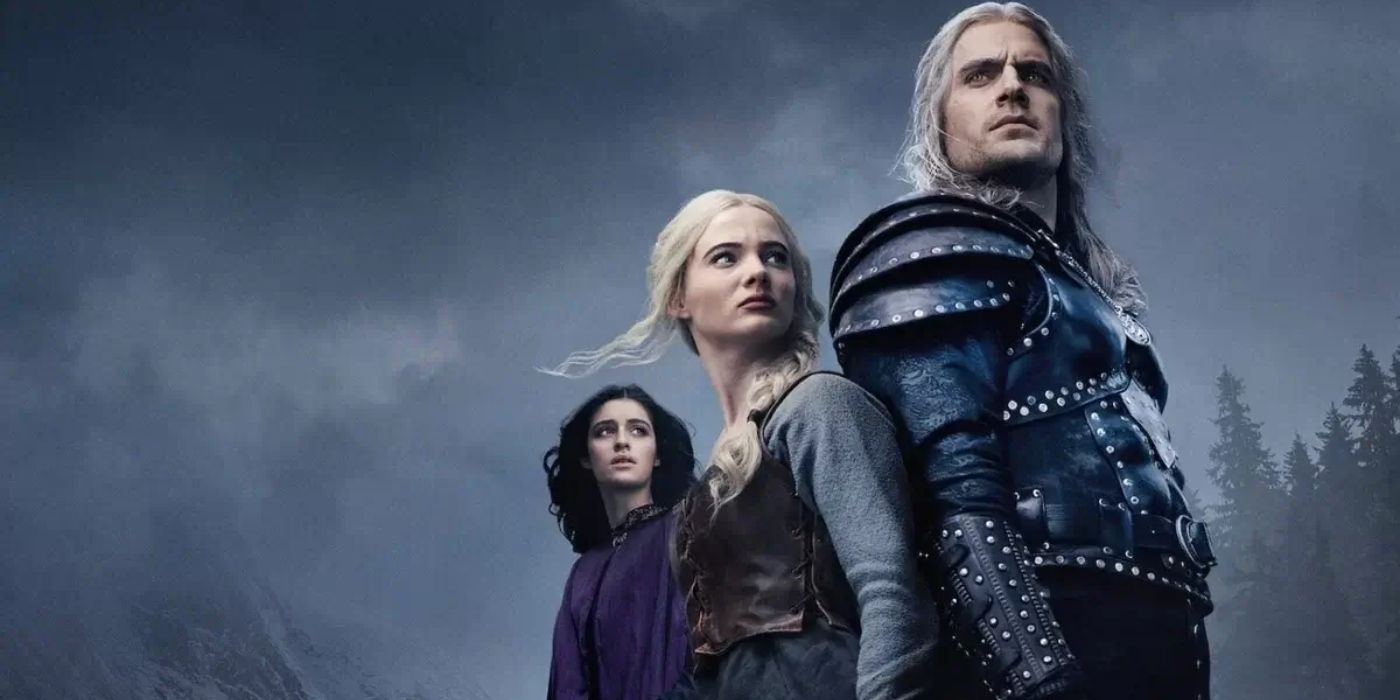
Our Biggest Unanswered Questions After ‘The Witcher’ Season 3
While Season 3 of ‘The Witcher’ gives us many answers, many questions still need to be addressed in Season 4.
What Does Ciri’s Journey Mean for ‘The Witcher’ Season 4?
Whether Ciri’s transformation was via her own struggles or via external factors, the decision itself ushers in significant ramifications for the future of the Continent and The Witcher Season 4. With Cavill leaving the show, Ciri is most likely going to be stepping into more of a leading role and this episode sets up her newly transformed identity for the future season. Despite refusing Falka’s advice, Ciri ends up introducing herself as Falka in the season finale, indicating she is embodying the part of her that favors brutality and wrath, but doing so in a way that does not involve fire magic — or magic at all. Being separated from Geralt and Yennefer, Ciri only has her wits and Witcher training to rely on for survival. It also puts her in a position to make far more decisions for herself, something we have rarely seen during the show.
After three seasons, this Cintran princess finally has the opportunity to prove herself in The Witcher season 4 and apply everything she has learned and experienced in order to achieve her ultimate aim — to stop history from repeating itself and change the future of all those on the Continent.
The Witcher is available to stream on Netflix in the U.S.
Watch on Netflix

